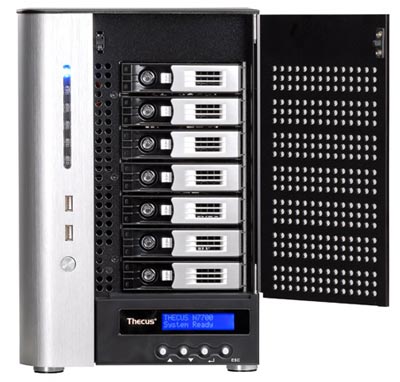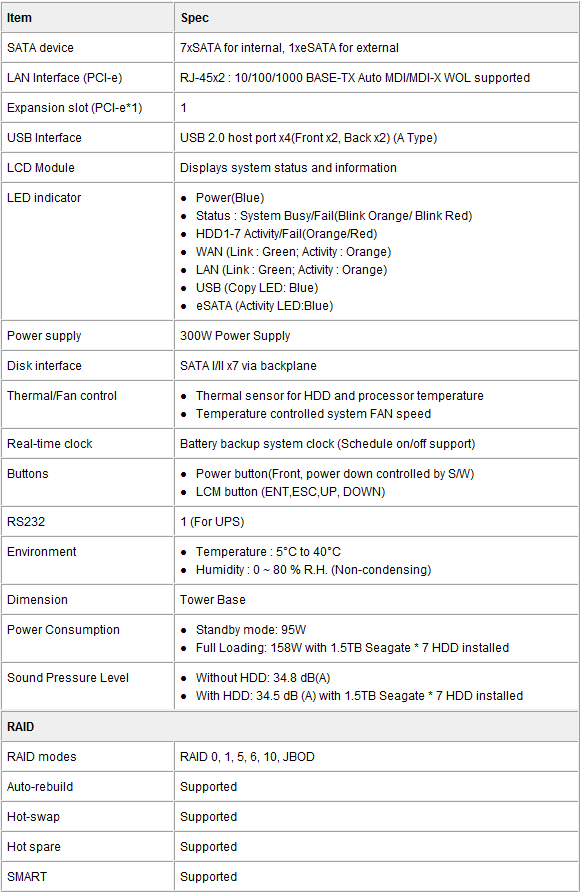Thecus N7700 Network Attached Storage Server
Introduction and Specifications

Although the worldwide economy may be shrinking, our needs as consumers to store large amounts of data continues to grow at a breakneck pace. Whereas only a few years ago it was uncommon for most PC users to have more than just a few digital images or media files, today virtually every aspect of our lives has some sort of digital component. Our mobile phones now take pictures, shoot video, record audio and handle e-mail. it seems like everyone has a vast MP3 collection. We all create numerous documents, presentations, etc. And high-resolution, multi-megapixel digital cameras are prolific--and all that data has to go somewhere, if you want to save it, that is.
While consumers have a seemingly insatiable need for data storage, the data storage needs of small business and enterprise users are consistently growing as well. In addition to all of the aforementioned data types, SMBs and the enterprise have to contend with large databases and a myriad of backup data necessary to comply with local, state, and federal regulations, among numerous other things. As such, a class of high-end NAS (network attached storage) devices targeted at a broad range of consumers and professional users has emerged, that are both extremely powerful and easy to manage.
One such device is the Thecus N7700 NAS Server. The N7700 can accommodate up to 12 hard drives (7 x internal, 1 x external sSATA, 4 x USB), it supports multiple RAID configurations, it had dual Gigabit Ethernet jacks that support load balance and fail over functionality, and it has an easy to use browser-based interface that's simple to manage. Some of the unit's main features and specifications are listed below, and we'll explore the devices inner workings and performance on the pages ahead.

|

This is only a partial list of the Thecus N7700's specifications--the entire list is just too long to post here. What these specs do show are the RAID modes supported, connectivity options, LED indicators, the disk interface, etc. What they don't show, however, is that the N7700 is less like a basic NAS device that simple gives users access to a storage volume over a network and more like a full system, disguised in a sleek, small-form-factor tower. You'll see what we mean on the next page...






